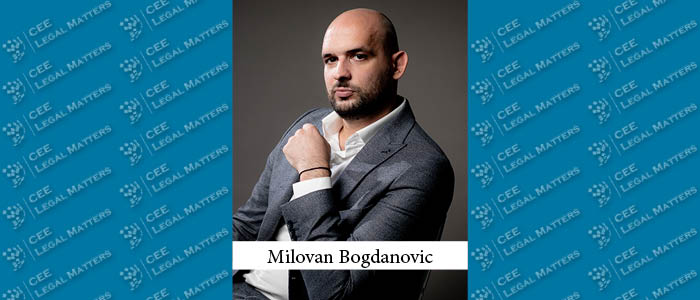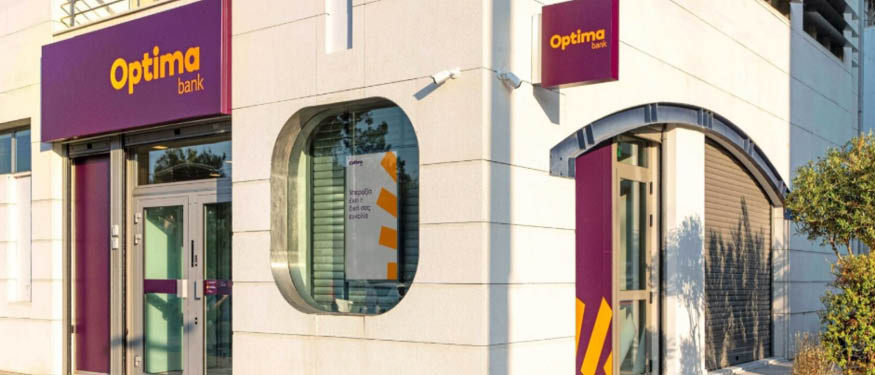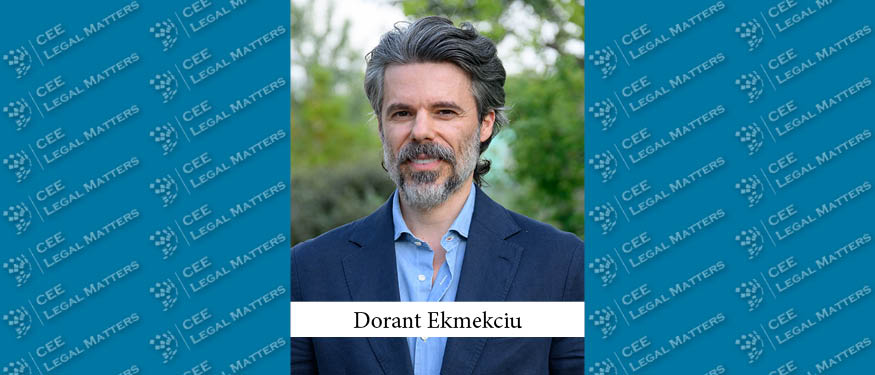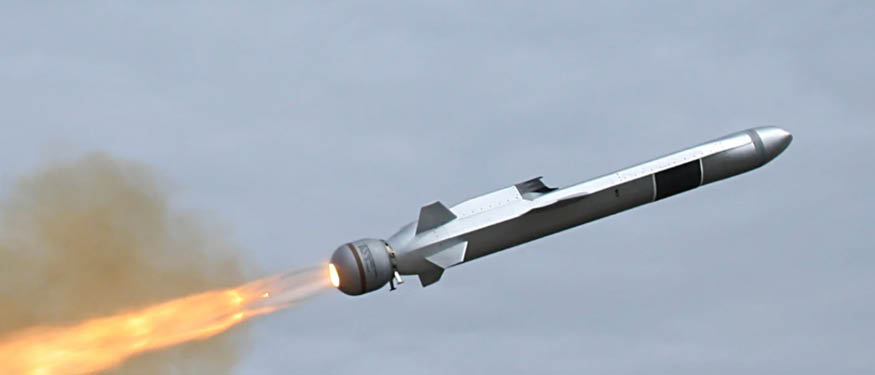As we promised a few weeks ago when we discussed all the interesting aspects of commercial offences as an integral part of Serbian penal law, we shall now take a closer look at the first-instance proceeding and some of the most important segments of domestic and foreign legal entities, as well as their responsible persons, should keep in mind in case they are subjected to a commercial offence proceeding.
General Principles of Commercial Offence Proceeding
As an additional reminder to our readers, in Chapter 1, we have stated that the accusatory principle represents the dominant foundation when conducting the proceeding itself. This means that an independent state authority – Public Prosecutor, is authorized to prosecute commercial offenders and initiate the commercial offence proceeding before the competent court. Of course, even though it’s sometimes treated as an exclusive rule in court practice, it comes with an exception, but more of that can be found in our previous article.
Another general principle of the commercial offences proceeding is provided under Article 42 of the Commercial Offences Act (Official Gazette of the SFRY, Nos. 4/77, 36/77 (corrected version), 14/85, 10/86 (revised text), 74/87, 57/89 and 3/90, Official Gazette of the FRY, Nos. 27/92, 16/93, 31/93, 41/93, 50/93, 24/94, 28/96 and 64/2001 and Official Gazette of RS, No. 101/2005 (other law), hereinafter: ‘’Law’’). It stipulates that only the competent court in the proceedings instituted and completed in accordance with the Law may impose a fine, a suspended sentence and security measures for the committed commercial offences.
Moreover, it should be noted that Article 51 of the Law enables the so-called rule of the joint proceeding - meaning that a joint proceeding shall be initiated and implemented for the commercial offence of a legal entity and a responsible person. Furthermore, the initiation and conduct of proceedings only against a legal entity or only against a responsible person is possible if there are legal reasons for prosecuting only one of them, or if the responsible person is being prosecuted for a commercial offence that has features of commercial offence.
Most legal practitioners would agree that the provision of Article 56 of the Law is the most important one in the section governing the proceeding itself. People of theory might disagree. However, this time, we must put our faith in practitioners given they will take active participation in accusation, defense, and judgment, and not the theorist. The aforementioned provision provides that unless otherwise stipulated by the Law, the following provisions of the Criminal Procedure Code ("Official Gazette of RS", no. 72/2011, 101/2011, 121/2012, 32/2013, 45/2013, 55/2014, 35/2019, 27/2021 - Decision US and 62/2021 - Decision US), hereinafter: ,, Procedure Code’’) shall apply to commercial offence proceedings: provisions on the general principles, on the joinder and severance of proceedings, on the transfer of territorial jurisdiction, on the consequences of non-jurisdiction, on recusal, on the Public Prosecutor, on the injured party, on the defense counsel, on briefs and records, on time periods, on the costs of criminal proceedings, on claims for indemnification, on rendering and pronouncing decisions, on the service of documents and examination of files, on the meaning of legal terms and other provisions, on the summons and bringing in the defendant, on search, on the temporary confiscation of objects, on the examination of the defendant, on hearing witnesses, on on-site investigation, on expert analysis, on preparations for the main hearing, on the main hearing, on the judgement, on ordinary legal remedies, on the reopening of proceedings, on the motion for the protection of legality, on the proceedings for the enforcement of security measures, and the proceedings for issuing warrants and notices.
Before we take a closer look at the initiation of the proceeding and its phases, Article 57 of Law strives to simplify the very text of Law thus simplifying its application by stipulating that the injured party shall be a person whose personal or property rights have been infringed upon by a commercial offence; the prosecutor shall be understood as the Public Prosecutor and the subsidiary prosecutor; - the party shall be understood as the prosecutor, the accused legal entity and the accused responsible person; - the term “defendant” is used as the general term for the accused legal entity and the accused responsible person.
Considering that we have already elaborated the court jurisdiction in the previous chapter, we think that it is time to ‘initiate the proceeding’ at last!
Preliminary proceeding – who can report the commercial offence and actions of a competent Public Prosecutor upon submitted report?
Despite the fact that most of the entities mentioned under Article 85 no longer exist and represent a relic of the socialist past, it is important to point out that in accordance with the mentioned article, all government bodies, organizations of associated labor, other self-management organizations and communities shall report commercial offences they have been informed about or they have learned about in some other way. All the mentioned subjects shall provide all the information about the commercial offence and the offender in their offence report, indicating evidence known to them, and shall take steps to preserve identity papers, business records, other documents, and traces of the commercial offence, as well as the objects on which or by means of which the commercial offence was committed and other evidence thereof. Moreover, the competent authorities shall also take into consideration offence reports filed by citizens.
A commercial offence report is submitted to the competent Public Prosecutor in writing or orally. Law provides different rules for both modifications of submitting and even prescribing the case of filing the report by phone when the official note must be made.
As is the case in other criminal proceedings, the actions of the competent public prosecutor upon the submitted report depend on the content of the report itself:
- The Public Prosecutor can dismiss an offence report if it indicates that the reported offence does not constitute a commercial offence, that the statute of limitations on prosecution has expired or that there are other legal grounds ruling out prosecution. In such an event, the Public Prosecutor shall notify the submitter of the report and the injured party of the grounds for its dismissal, within eight days of rendering a decision on dismissal. The submitter may file an objection to the directly higher prosecutor against the decision on dismissal of the report, as it usually happens in all penal proceedings in Serbia.
- If the Public Prosecutor believes that there are insufficient grounds in an offence report or in the collected information and data to file the indictment, it shall propose that the competent court take specific investigative actions. If the assigned judge agrees with this proposal, it shall take investigative actions and then submit all the files to the Public Prosecutor. Investigative actions shall be launched immediately and completed as quickly as possible. Once the Public Prosecutor receives the files/notification from the first-instance court, it shall either file the indictment to the court or render a decision on the dismissal of a commercial offence report.
- Finally, the Public Prosecutor can file the so-called “direct” indictment to the competent court (in accordance with the provisions of the Procedure Code, direct indictment represents a type of indictment act that was not preceded by the conduct of an investigation or investigative action in the case of commercial offences).
Given that the quality of the indictment in most cases depends on the quality of conducted investigative actions, the Law provides this segment of the previous proceeding the most “space” and through 10 extensive Articles stipulates all the rules of conduct, i.e., the rights and obligations of all participants at this stage of the proceeding. In case of initiating the investigative actions, all accused legal entities, their representatives and responsible persons should know that they, as a rule, can attend all investigative actions undertaken by a certain judge or the competent inspection authority.
Preliminary examination of the indictment, Summary Proceeding and the discontinuation of the proceeding
Upon the completion of investigative actions, further proceedings may be conducted only on the basis of the prosecutor’s indictment.
The court shall dismiss the indictment if the act the defendant is charged with does not represent a commercial offence, if the statute of limitations on prosecution has expired or if there are other legal grounds ruling out prosecution. If investigative actions have already been taken, the court shall dismiss the indictment if there is not sufficient evidence generating reasonable suspicion that the offender has committed the commercial offence it is charged with.
The general rule is that the court shall schedule the main hearing forthwith if it determines that another court is not competent in the specific case, that it is not necessary to conduct additional investigative actions in accordance with the provisions of Article 104, and that there are no legal grounds for indictment’s dismissal. However, the exception comes in the form of the Summary Proceedings – a proceeding in the jurisdiction of a single judge where the decision on commercial offence might be rendered without scheduling the main hearing on the prosecution’s proposal.
Summary proceedings may be conducted only if the representative of the accused legal entity has already been heard and the accused responsible person has already been questioned during the investigative actions phase. In summary proceedings, a fine of up to RSD 100,000 may be imposed on the accused legal entity, whereas the accused responsible person may receive a fine of up to RSD 10,000.
Another important question of the first-instance proceedings is the discontinuation of proceedings. The court shall discontinue the proceedings against the accused responsible person if the accused responsible person is beyond the reach of government bodies or in the event that the accused responsible person has developed a temporary mental illness or a temporary mental disorder. Prior to the discontinuation of the proceedings, all available evidence of a commercial offence shall be collected. Once the obstacles leading to the discontinuation have been eliminated, the proceedings against the accused responsible person shall resume.
The main hearing and rendering of the decisions on commercial offences
The main hearing represents the phase of the proceeding consisting of the evidentiary proceeding, the parties’ closing arguments and the rendering of the decision. The main hearing commences with the publication of the indictment’s main content. Afterwards, the representative of the accused legal entity shall be heard, and the accused responsible person shall be questioned.
In the conviction, the court must state: the act for which the accused legal entity and the accused responsible person are pronounced liable, including the facts and circumstances constituting the elements of a commercial offence; all the regulations on the commercial offence that have been applied; the penalty to be imposed on the accused legal entity and the accused responsible person; the decision on acquittal; the decision on a suspended sentence; the decision on security measures; the decision on the confiscation of proceeds; the decision on the costs of proceedings and the claim for indemnification.
Final thoughts and further promises
Despite being simplified in comparison to a standard criminal procedure, a commercial offence proceeding still represents a field where 80% of defendants opt for formal defense due to the complexity of legislation and procedural rules. Both domestic and foreign legal entities and their responsible persons are aware of the fact that experienced attorneys can help them navigate through the process and provide services directed to the best possible outcomes which all represent the main reason for such a high percentage of formal defense in commercial offence proceedings.
In the upcoming period, our team of experts will give their thoughts on proceeding upon ordinary and extraordinary legal remedies, as well as for the three special proceedings governed by Law - for the Confiscation of Proceeds, for the Indemnification for Unjustifiable Conviction, for the Expungement of Conviction and Termination of Security Measures or Legal Consequences of Conviction, and Enforcement of the Decisions that will wrap everything up as a suitable finale to our ‘’trilogy’’.
By Milovan Bogdanovic, Senior Associate, JPM & Partners
















